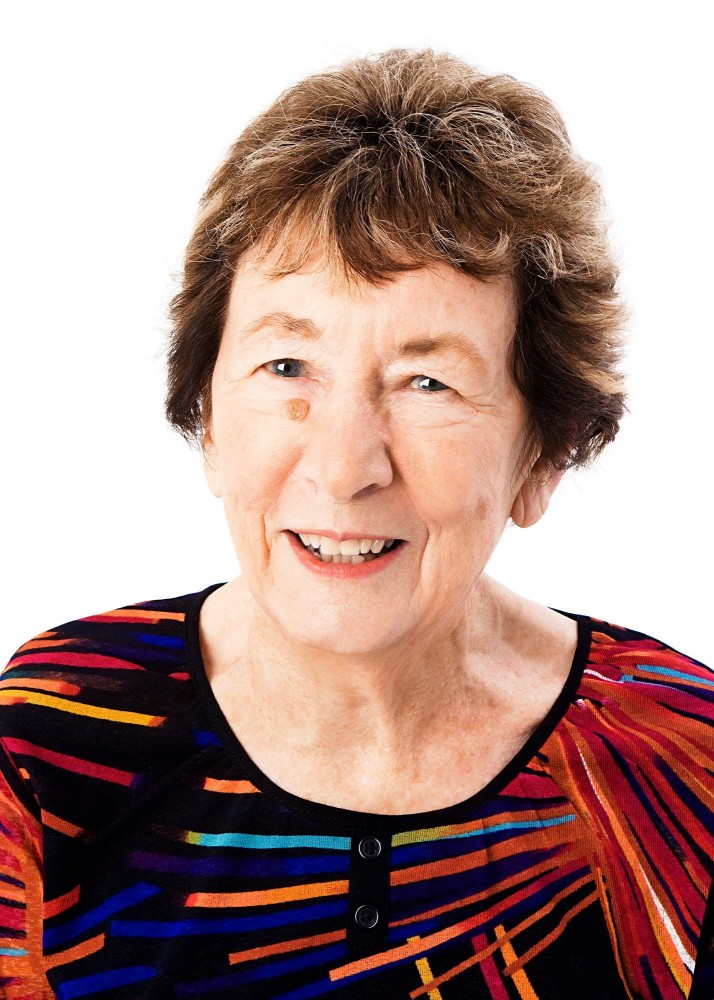Marie was a remarkable woman and we’d like to share a little more about her with you. Born in England in 1927, Marie was the second of four girls. When her elder sister, Joan, died at the age of 17 in 1941, Marie wrote “life conspired to nudge me into leadership” – a role she had in one form or another for all her days, and one she filled with dedication, grace, humour and love.
During World War II, she was evacuated to South Wales, but in 1942 she was visiting her family when a bomb hit her house. She and her family lost their home and most of their belongings, and her mother was badly injured. With her father busy with his responsibilities as a reserve policeman looking after an area vulnerable to invasion by the Germans, 16-year-old Marie took charge of finding the family a new home.
Marie was Head Girl in her final year of school and she won a scholarship to study at Kings College, London. However, her linguistic skills were required by the army, so she joined up and was asked to spend a year studying Japanese in preparation for a role in Japan once the war was over. While this never materialised, it was the beginning of Marie’s time in the army, and she was drafted to Germany when she was just 18 years old.
Marie spent two years in Hamburg (which had been heavily bombed), and then returned to London, where she applied to the London Metropolitan Police. There she was the first woman to win the prestigious Cadet of the Year award. She would later write that her time in Hamburg had given her insight into the reasons why desperately poor women with few options and opportunities turned to prostitution, and this experience was helpful to her as one of the few policewomen in England in 1948.
Marie’s stories of her time on the police force were always told with such humour and fun, she had a natural way of connecting with people and sharing in their joys and their pain.
After marrying Donald Hull-Brown, a New Zealander in the British Army in 1950, Marie resigned from the police force when she was pregnant with her first child. They spent 20 years travelling the world together, and somehow Marie always found a way to help those in need, whether she was in Libya, Cyprus, Hong Kong, Germany or Egypt, taking on a paid or voluntary social worker role wherever she was.
After the family moved to New Zealand, Marie once again took on a number of different roles – her last role before retirement was as administrative director at the YWCA, which in the 1980s had a policy of requiring staff to retire when they turned 60.
Marie did so, but, after a nice, long holiday and some time volunteering, felt her skills were still useful. She and a friend spotted a role at the Mental Health Foundation, which was looking for a full-time information and resources officer. They applied together to share the role, alternating weeks, and were successful.
After a few years, Marie took the initiative to apply for funding to undertake a survey of older people about their mental health, and the results of this helped Marie create the role in which she served the longest – project manager for older people’s mental health. For more than 20 years she worked four days a week, leaving home at 6am, as a tireless and fierce advocate for the wellbeing of older people.
In her role at the MHF, she facilitated workshops for carers of older people, lobbied local and central governments for the rights of older people, worked with DHBs and visited older people in the community to discover what issues were affecting them and how the MHF could help.
While at the MHF she served on a number of boards and committees including Age Concern, the Hope Foundation, Auckland City Council and Auckland District Health Board and had a radio show on Planet FM called Vintage Years.
When she departed the MHF (at the age of 87!), she left behind her a drawer full of chocolate, a warm blanket for those who suffered when the heating failed, and a legacy of current and past MHF-ers who were fortunate enough to have learned at her side and benefited from her wisdom and experience.
Marie was a deeply kind person, with a sparkling sense of humour and a fabulous wit, known for her remarkable generosity and genuine commitment to her work. She received a QSM in 2009 and the Age Concern New Zealand Outstanding Service Award in 2016.
At her poroporoaki when she left the MHF, Marie gave a beautiful speech, which she closed with a quote from Leonard Cohen. “Ring the bells that still can ring, forget your perfect offering. There is a crack in everything. That’s how the light gets in.”
We know everyone who knew Marie will continue to ring the bells that still can ring in her honour.
Marie once wrote she hoped to be “someone you can rely on to be there when needed. Perhaps that is not a bad way to be remembered.” We think she more than succeeded in that.
Rest in love, Marie.

